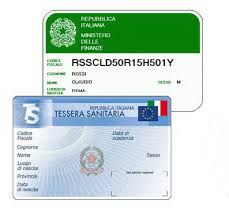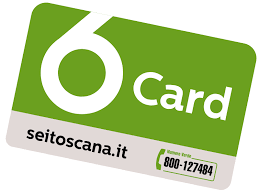Legacy planning for my Italian home: So, you are thinking of buying property in Italy, perhaps a Tuscan villa or hill town apartment. Maybe you have already taken the plunge and are living ‘La Dolce Vita’. For some, this is not just a dream, as a growing number of foreigners own property “Under the Tuscan Sun”. As you can imagine there are many things to consider when buying a property overseas with property management and logistical considerations at the top of the list. However, it is equally important to consider the legacy issues that apply to property owned in a foreign land.

As most already understand when it comes to their assets and properties at home, careful estate planning is needed if you wish to ensure that your Italian home passes according to your wishes. For instance, under Italian law your children automatically inherit a share of your property, even if it is held in two names or your non-Italian will says otherwise. For instance, a surviving spouse or partner may not wish to share ownership of the Italian dream home with a spouse’s children especially if there is more than one marriage. In this case, and under many other circumstances, leaving it up to Italian inheritance law is probably not a good idea.
Fortunately, with the help of a qualified notaio (Italian notary) you can execute an Italian will that specifically addresses your plan for your home and other property in Italy. You may also need to find someone to serve as your personal representative or executor in Italy and, if you are not fluent in Italian, you will need two bi-lingual witnesses when you execute your document. Although this may sound a bit daunting, it is no more of a challenge than buying property in Italy. Therefore, if you plan to purchase an Italian home for La Dolce Vita, or have already done so, make sure you understand the inheritance laws and if necessary, engage local professional to help you with your Italian Will.
Steve Gorman, Finance Manager, Norwell MA.
A FEW MORE THINGS TO KNOW ABOUT ITALIAN INHERITANCE LAWS
(a very basic summary from Cortona International)
If you own property in Italy, even if you are a non-resident – and irrespective of whether or not it is already included in a will you may have drawn up in your home country - Italian inheritance laws are applicable to that property, at the moment of your passing.
That in the absence of an Italian will, it is Italian law that will determine which relatives – so called, ‘forced heirs’ - have legitimate succession rights and the quota of assets attributable to them. This extends to the 6th degree of kinship, after which the estate would be assigned to the State.
For example, in the absence of an Italian will:
- If the deceased was married with no children, 100% of the estate would be inherited by his/her remaining spouse.
- If the deceased was married with one child, 50% would be inherited by the remaining spouse and 50% by the child.
- Two thirds of an estate would be inherited by the deceased’s children where there are two children or more. One third would be inherited by the remaining spouse.
- And so on…with varying quotas applicable to heirs according to their degree of kinship.
Forced heirs are: a) legitimate, natural adopted children b) married/registered partner c) legitimate ascendants (valid in the absence of any offspring).
Even with a will, the testator is restricted by Italian law, to provide for his/her ‘forced heirs’ in accordance to the applicable reserved (or legitimate) quota. Only a partial quota is available to be bequeathed to whom he/she may wish.
A will that does not respect the reserved quota for ‘forced heirs’ can be contested in court.
All in all, a bit of a minefield, for those accustomed to laws which allow them to leave what they wish to whom they wish.
Bewildering for remaining spouses who would no longer own their own homes. Complicated in the instance of married couples with offspring from previous marriages. Definitely something to analyse and discuss with a lawyer or notary.
A notarial will (drawn up only in Italian), written by a Notary and signed by a testator and two witnesses, costs (locally at least) circa Euro 1,200.00 including VAT + the cost of its translation, if required, which would depend on the document’s length.
An alternative, particularly if one has only a small estate, can be to personally and literally (not typed) write a holographic will in Italian. This is not notarized and signed only by the testator, with no other signatures necessary (such as the Notary or witnesses). They are equally valid wills, but cost a good deal less with only a consultancy fee to pay the Notary in order to ensure it is written legally and correctly. Cost circa Euro 300.00 + VAT per will.
Cortona is very fortunate in having two English-speaking notaries.
Their details are as follows:
STUDIO NOTARILE ELENA BUCCIARELLI DUCCI
Via Margaritone n. 3 - Arezzo
Via XXIV Maggio n. 26 – Camucia
Tel. 0557 355064 - Fax 0575 27683
Email: info@bucciarelliducci.it
Email: ebucciarelliducci@notariato.it
Avv. BARBARA ROMANA PEDONE
Notaio in Cortona
Via Alberto Sandrelli no. 36 - Camucia
Tel. 0575 603162
Email: brpedone@notariato.it
Email: barbararomana.pedone@postacertificata.notariato.it






